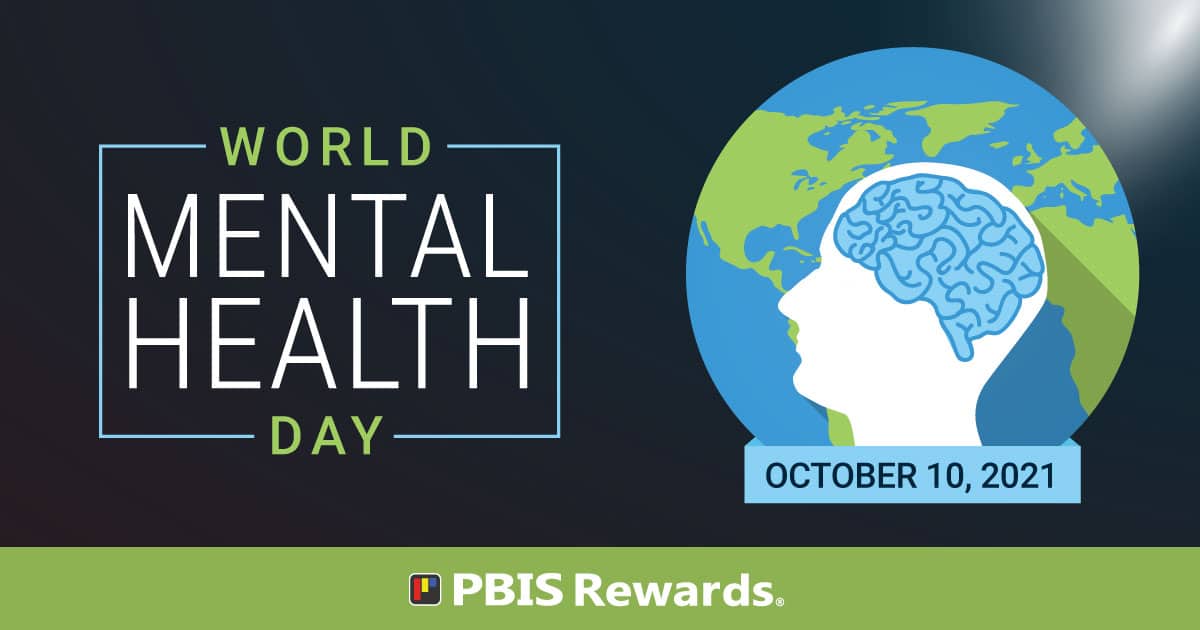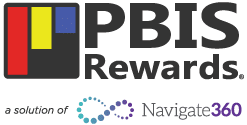Over the course of the Coronavirus pandemic, conversations around mental health have come to the forefront. As schools, businesses, and families have adapted to what has become a “new normal” in society, mental health challenges have become more prevalent. Students, in particular, have been affected by the demands of online school, physical and social distancing, and other unexpected life changes.
Although many schools have returned to in-person instruction, the impacts of COVID-19 continue to be felt. Each year, the World Health Organization (WHO) designates October 10th as World Mental Health Day, encouraging people around the world to focus on mental and emotional well-being. For educators and students alike, World Mental Health Day is an opportunity for open discussions and building useful coping strategies around the subject of mental health. Fortunately, schools with a PBIS initiative have the foundation to connect positive behaviors with mental health.
PBIS, SEL, and Mental Health
An important component of any PBIS initiative is its focus on positive behaviors, both individually and as these behaviors relate to others. Social and emotional learning (SEL) can help to guide students in the development of these positive behaviors.
Mental health and wellness has as its foundation four key attributes: mindset, relationships, habits, and emotions.
• Mindset – Put simply, your mindset is the story you tell yourself about your circumstances and your identity. The thought patterns and beliefs that inhabit your mind shape your view of reality and are the basis of your reactions. An unhealthy mindset can be transformed into a healthy one through a conscious effort to replace thoughts and beliefs that do not serve you well.
• Relationships – For students, relationships – both with adults and with their peers – have a big impact on mental health. Positive connection with the adults at home and at school can give them a place to turn when they need help and guidance. Friendship and positive communication among peers enables students to develop healthy self-confidence and respect for one another.
• Habits – Healthy habits can impact an individual in numerous ways. Physical, mental, and emotional habits interplay upon one another to create overall health.
• Emotions – It’s important that students understand that everyone feels the same emotions. Joy, fear, excitement, anger, sadness, hope – each person expresses these emotions in different ways. Learning to acknowledge and work through negative emotions is extremely important.
PBIS and World Mental Health Day
In schools utilizing a PBIS initiative, building good mental health habits is part of the process. Social and emotional learning helps students to develop the skills that serve as a foundation for mental health. Checking in with your students on this day and every other day to assess their social and emotional wellbeing can help them to understand the importance of their mental health.
Making World Mental Health Day part of your lesson plans doesn’t have to involve extra work or planning. Some of the activities you may already be doing in the classroom as part of your SEL curriculum can be adapted to focus on their mental health aspects. You may prefer to place the topic of mental health front and center and really dive deep into it. However you choose to acknowledge World Mental Health Day in the classroom, your students will benefit.
Here are some ideas to get the conversation started:
Movie Time
Without a doubt, students love movies in the classroom. There are plenty of movies available that touch on aspects of mental health, and these films can become the beginning of a great discussion as well as self-reflection. Check with your administration to make sure the film you wish to present is acceptable. You may want to give parents a head’s up before showing movies that deal with difficult subjects, to give them the opportunity for feedback.
Books
A unit based on a specific book can accomplish several educational goals. Reading fluency, literary analysis, critical thinking, research, and writing are academic skills that you will teach regardless of a book’s subject. Your book of choice can be one that addresses mental health in some way. There are numerous books in the Young Adult genre that touch on this topic. Younger students can also benefit from this kind of reading.
Journaling
The no-grade, no-pressure aspect of student journals is beneficial in a number of ways. Students can develop writing skills and develop creativity as you guide them by giving them topics to write about. For World Mental Health Day, you can suggest a topic related to mental health, such as emotions, empathy, or bullying. Let your students explore these topics at their own pace in their journals and invite discussion if they so choose.
Digital Detox
You might get some pushback from device-dependent students but challenging them to go 24 hours without devices can help recalibrate emotions. Frame it as an experiment and ask students to record their thoughts, feelings, and emotions for this 24-hour period. Follow up at the end of the challenge period by charting the experiences reported by your students. Use this information to talk about how devices can affect mental health.
Role Play
A tried-and-true favorite of educators everywhere! Engaging a class in a role-playing scenario can help focus attention on behavior, cause, and effect. There are several ways you can do this, including asking students to embody a specific emotion or allowing them to create one-scene, one-act plays.
Get Outside
Fresh air, sunshine, and nature are all terrific mood-lifters. Get students back in touch with the natural world by taking a short field trip, even if it’s just around the block or out on your school’s sports fields. Depending on the age group of your students, you can collect items to study in class or simply let them wander and experience the great outdoors for a short while. Connect this activity with their observations of how their time outside made them feel.
Scripting
Sometimes it’s hard to know what to say in a difficult situation. Give students some scenarios in which they or someone else is experiencing a challenge. Sometimes students need a ready-made storehouse of ideas and responses to combat such situations. Model positive self-talk or encouragement through scripted responses. Knowing when to reach out for help is important, as well, so tell them it’s always acceptable to involve a trusted adult when a situation is too much for them to handle.
Equipping students with the information and skills to measure their mental health can make a world of difference in an increasingly stressful society. A PBIS initiative can help by encouraging positive behaviors schoolwide. When educators and school staff acknowledge positive behavior, it can change school climate in numerous ways. Positive school climate enables students to focus on their mental health and reach out for help if needed.
Teachers, Too!
While you may want to focus on students for World Mental Health Day, don’t forget yourself! Making time and room in your life for self-care can help you to maintain good mental health. Teachers are under an incredible amount of stress. Just as you teach your students the skills they need to develop resilience and good mental health habits, don’t forget to turn some of that attention on yourself. Remember, your students are learning from you even when you’re not actively teaching!
While October 10th is World Mental Health Day, conversations around mental health can and should take place at any time. PBIS Rewards can help by making the administration of your PBIS initiative easier. Easily track student behavior, award points, and access reports that show you how well your initiative is working. Our SEL Check feature enables teachers to get a quick read on student social and emotional wellbeing. You can even turn on the Student Self SEL Check feature to allow students to self-report how they feel.
A PBIS initiative can help improve student (and teacher) mental health, and PBIS Rewards can make it easy. Contact us to learn more!


